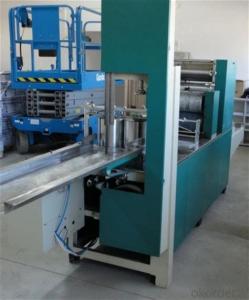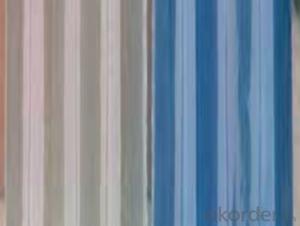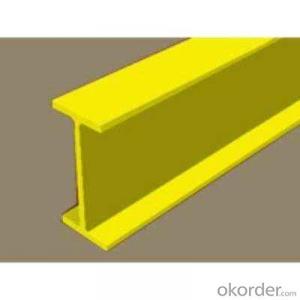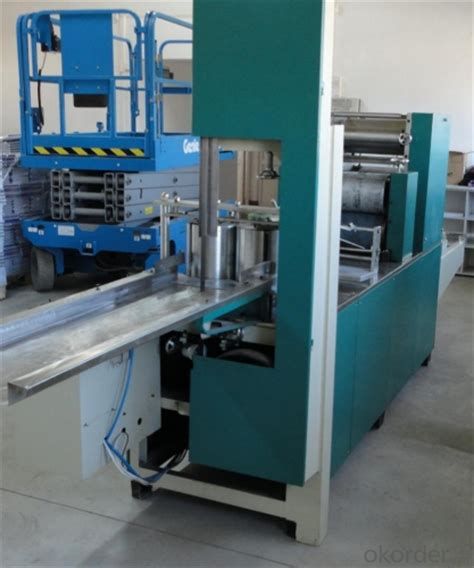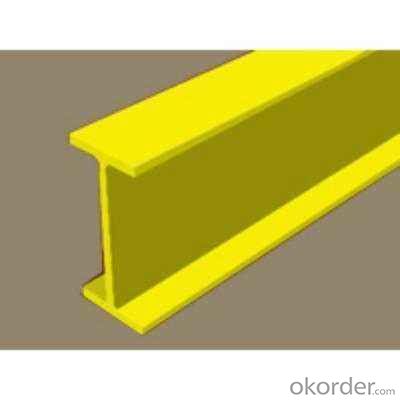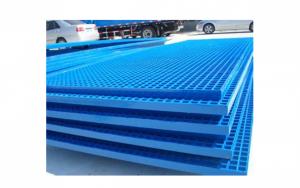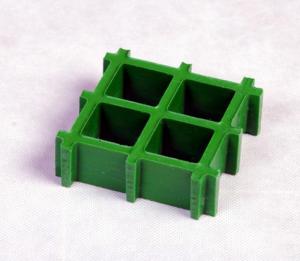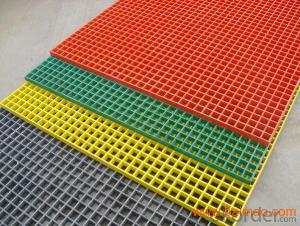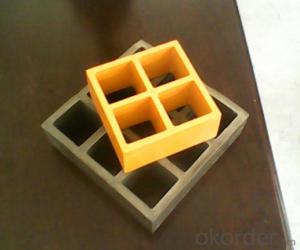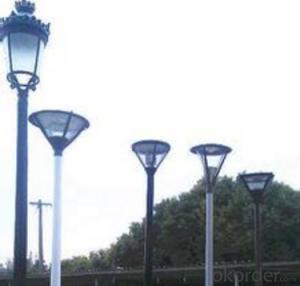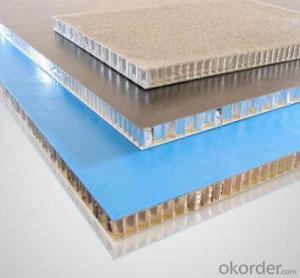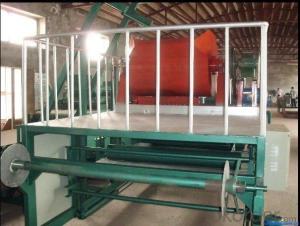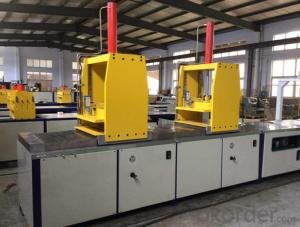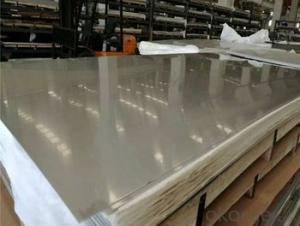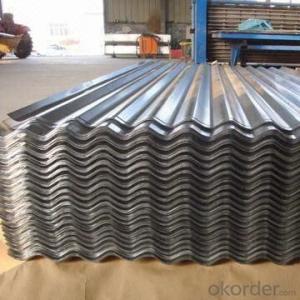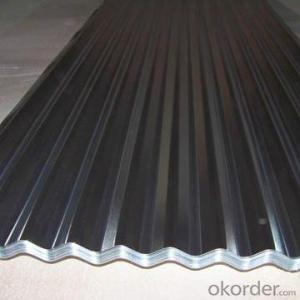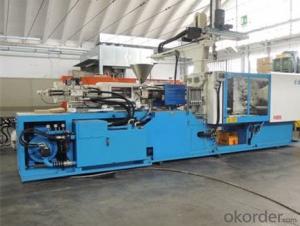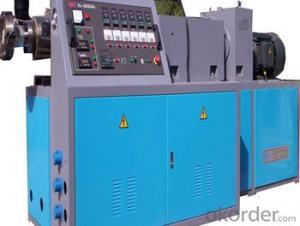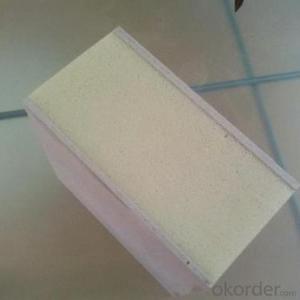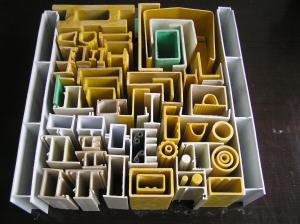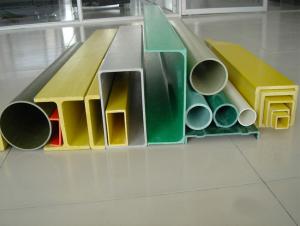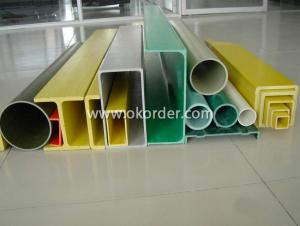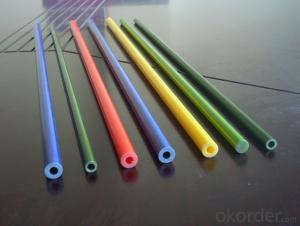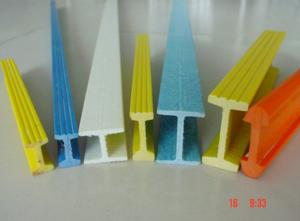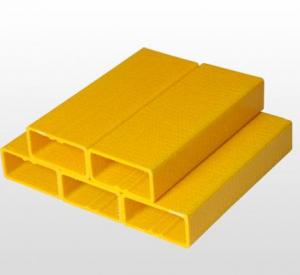FRP Pultrusion Profiles - Pultruded Grating with Anti-Fatigue and Best Quality
- Loading Port:
- Tianjin
- Payment Terms:
- TT OR LC
- Min Order Qty:
- 5000 m.t.
- Supply Capability:
- 100000 m.t./month
OKorder Service Pledge
OKorder Financial Service
You Might Also Like
Specification
PRODUCT DESCRIPTION
Pultruded grating is made by a particular assembly process, which using “I” shape as its main load-bearing and special rod to go through the bearing bar. Pultruded grating include the standard grating and the custom grating, the custom grating can be designed to meet customer’s requirement or special using condition by changing the shape, size and space of the bearing bars, the surface can be covered with lozenge panel, grit panel, or added the anti-slippery sand directly.
FRP pultruded grating has the most characteristics of molded grating, but it has its distinct advantages, it has very high fiberglass content in the loading direction, so it has very high load capability, it has more superiority when used at wide span, so that the basic support will be decreased and the project cost will be reduced accordingly.
SPECIFICATION
The standard space between two crossbars is 6 inch or 12 inch.
Thickness (mm) | Bar width (mm) | Open space (mm) | Open rate (%) | Approx weight (kg/m |
25.4 | 15.2 | 22.8 | 60 | 13.2 |
25.4 | 15.2 | 15.2 | 50 | 15.9 |
25.4 | 15.2 | 10.1 | 40 | 18.5 |
25.4 | 40 | 10.8 | 21 | 14.5 |
38.1 | 15.2 | 22.8 | 60 | 15.8 |
38.1 | 15.2 | 15.2 | 50 | 19.1 |
38.1 | 15.2 | 10.1 | 40 | 22.4 |
50.8 | 25.4 | 25.4 | 50 | 16.6 |
50.8 | 25.4 | 12.7 | 33 | 21.1 |
CHOICE FOR PULTRUDED GRATING
Resin: GP resin, ISO resin, VE resin, Phenol resin
Color choice: Yellow, gray, green, custom color
Surface choice: Groove surface, grit surface, lozenge cover surface
FEATURES
a. Anti-corrosion and anti-rust
b. Light weight and high strength
c. Anti-flammable
d. Anti- fatigue
e. Safe and anti-slippery
f. Anti-ageing
g. Easy of maintenance
h. Excellent electromagnetism property
i. Good economic benefit
FIELDS SERVED
Sewage treatment,
water supply and drainage,
chemical industry,
oil industry,
power engineering,
pulp and paper.
APPLICATION
Operation terrace,
stair walkway,
ground floor,
trench cover,
sidewalk,
foot bridge.
COMPANT DESCRIPTION
CNBM,China National Building Materials Group is a state-owned enterprise in charge of administrative affairs in china building materials industry. Established in 1984, CNBM is a large group corporation of building materials with total assets of 25 billion RMB and a total staff of 30,000.CNBM now owns 200 subordinating firms of solely owned and joint-venture companies.
CNBM International Corporation is one subsidiary of CNBM, we focus on offering good-quality products,professional service and complete solution to our customers. Strong delivery capacity, advanced technology& management, strong financing capability and excellent after-sale service are our advantages in sharing international market.
FAQ
Q1.What's your sample policy?
A:We can supply the sample if we have ready parts in stock, but the customers have to pay the courier cost.
Q2.Can you produce according to the samples?
A: Yes, we can produce or modify the products according to your request.
Q3.How do you deliver the goods to my country?
A:We can provide international express, such as DHL, EMS, UPS, FedEx, etc. We select air freight and sea freight upon your requests. Quotations if without mentioning the shipping costs are shipping fee excluded.
Q4.How much does it cost to ship to my country?
A:When you goanna to place an order, please contact us, because different country has different freight.
Q5.How to get the catalogue?
A:please contact us and tell us what you are looking for.
We will try our best to meet customers' demands. Welcome you come here to visit us. We sincerely welcome partners around the world to establish business cooperation with us on the basis of mutual trust, benefit and development.
PICTURES
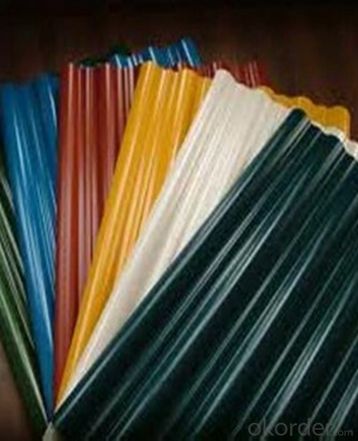
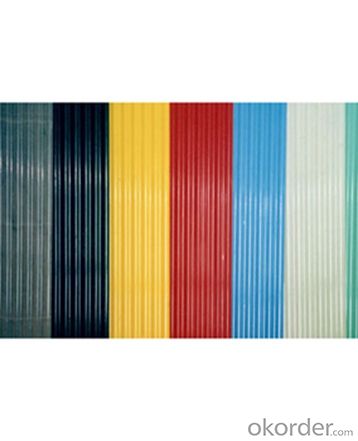
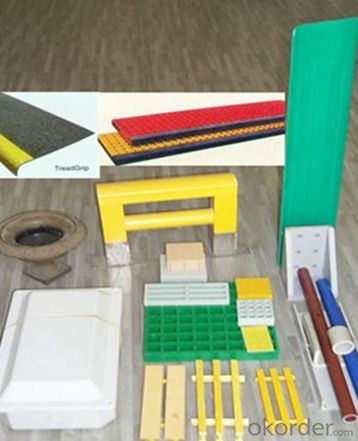
- Q: Can FRP pultrusion profiles be used in the construction of outdoor signage?
- Yes, FRP (Fiber Reinforced Polymer) pultrusion profiles can be used in the construction of outdoor signage. FRP pultrusion profiles are known for their durability, strength, and resistance to various environmental conditions, making them suitable for outdoor applications. These profiles are typically made of a combination of fiberglass reinforcement and resin matrix, resulting in a lightweight yet strong material. Outdoor signage often needs to withstand harsh weather conditions, such as rain, sun exposure, and temperature fluctuations. FRP pultrusion profiles have excellent resistance to corrosion, UV rays, and moisture, ensuring that the signage can maintain its structural integrity and visual appeal over time. Furthermore, FRP pultrusion profiles can be customized to meet specific design requirements, allowing for flexibility in creating unique and eye-catching outdoor signage. These profiles can be easily shaped, cut, and assembled, making them a versatile choice for signage applications. In summary, FRP pultrusion profiles can indeed be used in the construction of outdoor signage due to their durability, resistance to environmental conditions, and flexibility in design.
- Q: Can FRP pultrusion profiles be used in the construction of pedestrian bridges?
- Yes, FRP (Fiber Reinforced Polymer) pultrusion profiles can be used in the construction of pedestrian bridges. FRP pultrusion profiles offer several advantages that make them suitable for bridge construction. Firstly, FRP pultrusion profiles are lightweight yet extremely strong and durable. This makes them ideal for use in pedestrian bridges where weight considerations are important. The lightweight nature of FRP profiles also makes transportation and installation easier and more cost-effective. Secondly, FRP pultrusion profiles are corrosion-resistant, which is a crucial factor in bridge construction. Unlike traditional materials like steel or concrete, FRP does not rust or corrode, even in harsh environmental conditions. This property significantly extends the lifespan of the pedestrian bridge and reduces maintenance costs. Additionally, FRP pultrusion profiles offer design flexibility. They can be easily customized to meet specific project requirements, allowing for unique and innovative bridge designs. The material can be molded into various shapes and sizes, enabling the construction of aesthetically pleasing pedestrian bridges. Furthermore, FRP pultrusion profiles have excellent mechanical properties, including high strength-to-weight ratio and fatigue resistance. This ensures that the bridge can withstand the loads and stresses imposed by pedestrian traffic over an extended period. Lastly, FRP pultrusion profiles are non-conductive, making them a safe choice for pedestrian bridges. They do not conduct electricity, which reduces the risk of electrical accidents in areas where overhead power lines or electrical equipment are present. In conclusion, FRP pultrusion profiles are a suitable choice for the construction of pedestrian bridges due to their lightweight, corrosion-resistant, customizable, and mechanically strong properties. Their use can result in durable, low-maintenance, and visually appealing bridges that provide a safe and efficient means of pedestrian transportation.
- Q: Can FRP pultrusion profiles be used in the transportation and logistics industry?
- FRP pultrusion profiles have the capability to be utilized in the transportation and logistics sector. They possess a multitude of advantages that render them suitable for diverse applications within this industry. To begin with, FRP pultrusion profiles are both lightweight and exceptionally robust, ensuring durability. This characteristic makes them highly suitable for implementation in transportation vehicles such as trucks, trailers, and containers, where weight reduction is crucial for enhancing fuel efficiency and minimizing emissions. Despite their lightweight nature, FRP pultrusion profiles are capable of enduring heavy loads and harsh environmental conditions, thereby guaranteeing their reliability and longevity. Furthermore, FRP pultrusion profiles exhibit remarkable resistance to corrosion. Unlike conventional materials like steel or aluminum, FRP does not succumb to rust or corrosion when subjected to moisture or chemicals. This renders FRP profiles apt for applications in transportation and logistics that involve exposure to corrosive substances like saltwater, chemicals, or acidic environments. By incorporating FRP pultrusion profiles, companies can curtail maintenance expenses associated with corrosion and prolong the lifespan of their equipment. In addition, FRP pultrusion profiles offer flexible design options. They can be manufactured in a myriad of shapes, sizes, and configurations to cater to the specific requirements of transportation and logistics applications. Whether it entails structural components, platforms, flooring, or supports, FRP profiles can be tailored to accommodate diverse needs, thereby ensuring optimal performance and functionality. Moreover, FRP pultrusion profiles possess exceptional electrical and thermal insulation properties. This renders them suitable for applications in which electrical conductivity needs to be minimized or thermal insulation is necessary. Within the transportation and logistics industry, this feature can be advantageous for applications like insulation for refrigerated containers or electrical insulation for specialized vehicles. In conclusion, FRP pultrusion profiles are highly suitable for implementation in the transportation and logistics sector. Their lightweight, robust, corrosion-resistant, and customizable nature, combined with their electrical and thermal insulation properties, render them a dependable choice for diverse applications within this field.
- Q: Are FRP pultrusion profiles resistant to wear or abrasion?
- Yes, FRP pultrusion profiles are highly resistant to wear and abrasion. The combination of strong reinforcing fibers and a durable resin matrix makes them capable of withstanding harsh conditions and maintaining their structural integrity over time, even in high-stress environments. This resistance to wear and abrasion makes FRP pultrusion profiles an excellent choice for applications that require long-lasting and low-maintenance solutions.
- Q: Are FRP pultrusion profiles resistant to hydrocarbons?
- FRP pultrusion profiles are known to be resistant against hydrocarbons. By combining different reinforcing fibers, such as fiberglass or carbon fiber, with a polymer matrix, FRP materials exhibit a high level of resistance to chemical corrosion, including hydrocarbons. This resistance makes FRP pultrusion profiles an excellent choice for applications that involve exposure to hydrocarbons, such as in the oil and gas industry, chemical processing plants, and fuel storage facilities. However, it is important to bear in mind that the level of resistance may vary depending on the specific resin used in the FRP material, as well as the concentration and temperature of the hydrocarbons present. Hence, it is advisable to consult with the manufacturer or supplier of the FRP pultrusion profiles to confirm their compatibility with the particular hydrocarbon environment at hand.
- Q: Can FRP pultrusion profiles be used in the construction of playground equipment?
- FRP pultrusion profiles are indeed applicable in the construction of playground equipment. Renowned for their exceptional strength-to-weight ratio, resistance to corrosion, and long-lasting quality, these profiles prove to be ideal for outdoor applications like playground equipment. The versatility of these profiles allows for the creation of various structures such as slides, climbing frames, and play structures. Moreover, the ability to mold FRP pultrusion profiles into different shapes and sizes provides flexibility in design and customization options for playground equipment. An added advantage is that FRP materials are non-conductive, ensuring the safety of children. All in all, the numerous benefits offered by FRP pultrusion profiles make them an appropriate choice for constructing playground equipment.
- Q: Can FRP pultrusion profiles be used in the construction of train or subway platforms?
- Yes, FRP (Fiber Reinforced Polymer) pultrusion profiles can be used in the construction of train or subway platforms. FRP pultrusion profiles are made of a combination of reinforced fibers and a polymer resin matrix, which gives them high strength and durability. These profiles are lightweight, corrosion-resistant, and have excellent mechanical properties, making them suitable for various applications in the construction industry. When it comes to train or subway platforms, FRP pultrusion profiles can be used for various structural components such as handrails, guardrails, gratings, and decking systems. These profiles provide a non-conductive and non-magnetic solution, which is essential in railway environments to prevent interference with electrical and signaling systems. Furthermore, FRP pultrusion profiles offer a high level of customization, allowing them to be tailored to specific project requirements. They can be manufactured in various shapes, sizes, and colors to meet the aesthetic and functional needs of train or subway platforms. Moreover, FRP pultrusion profiles have excellent resistance to environmental factors such as moisture, chemicals, and UV radiation. This resistance ensures that the profiles remain durable and maintain their structural integrity over time, even in harsh and corrosive conditions commonly found in railway environments. Overall, FRP pultrusion profiles are a reliable and cost-effective choice for the construction of train or subway platforms. They provide numerous advantages including strength, durability, customization options, and resistance to environmental factors, making them a suitable alternative to traditional materials in these applications.
- Q: Are FRP pultrusion profiles resistant to corrosion and chemicals?
- Yes, FRP (Fiber Reinforced Polymer) pultrusion profiles are highly resistant to corrosion and chemicals. FRP is composed of a combination of reinforcing fibers, such as fiberglass, and a polymer resin matrix. This unique composition provides excellent resistance to a wide range of corrosive environments and chemicals. FRP pultrusion profiles have inherent corrosion resistance due to the absence of metal components. Unlike metals that can corrode when exposed to moisture, oxygen, or certain chemicals, FRP does not rust or deteriorate. This makes FRP pultrusion profiles an ideal choice for applications in industries such as chemical processing, wastewater treatment, marine, and oil and gas. Furthermore, FRP pultrusion profiles are highly resistant to a variety of chemicals, including acids, alkalis, solvents, and salts. The polymer resin matrix used in FRP provides a protective barrier that prevents chemical penetration and degradation of the structural profile. This resistance to chemicals ensures that FRP pultrusion profiles can withstand harsh environments without suffering from corrosion or material degradation. In summary, FRP pultrusion profiles are indeed resistant to corrosion and chemicals. Their non-metallic composition and protective polymer resin matrix make them highly durable and suitable for a wide range of applications where corrosion and chemical resistance are crucial.
- Q: Are FRP pultrusion profiles resistant to saltwater corrosion?
- Indeed, FRP pultrusion profiles exhibit exceptional resistance to saltwater corrosion. Their corrosion resistance is a significant advantage over traditional materials like steel or aluminum. The combination of reinforcing fibers and resin matrix in FRP profiles endows them with inherent resistance to the corrosive effects of saltwater. FRP profiles consist of a blend of glass or carbon fibers that are embedded in a thermosetting resin. These constituents do not chemically react with saltwater, effectively preventing the corrosion commonly observed in metals exposed to saltwater for prolonged periods. Additionally, the resin matrix utilized in FRP profiles acts as a protective barrier, further impeding saltwater from reaching the reinforcing fibers. The corrosion resistance of FRP pultrusion profiles renders them exceptionally suitable for applications in marine settings. Seawalls, dock fenders, offshore platforms, and marine vessels frequently employ FRP profiles due to their durability in saltwater environments. This durability guarantees long-term performance and minimizes the necessity for frequent maintenance or replacement. However, it is crucial to acknowledge that although FRP pultrusion profiles demonstrate high resistance to saltwater corrosion, they can still be influenced by other factors like UV radiation or chemical exposure. Consequently, it is vital to consider the precise environmental conditions and consult manufacturers or experts to select the most appropriate FRP profile for a given application.
- Q: Are FRP pultrusion profiles resistant to impact and vibration?
- Yes, FRP (Fiber Reinforced Polymer) pultrusion profiles are generally highly resistant to impact and vibration. The combination of resins and fibers used in FRP pultrusion manufacturing makes the profiles inherently strong and durable. The fibers, typically glass or carbon, provide high tensile strength, while the resin matrix offers additional toughness and resistance to impact. Due to their unique composition, FRP pultrusion profiles have excellent energy absorption properties, which allows them to withstand impacts without significant deformation or damage. This makes them suitable for applications where impact resistance is crucial, such as in construction, transportation, and infrastructure projects. Moreover, FRP pultrusion profiles exhibit remarkable resistance to vibration. The composite material's inherent damping characteristics help dissipate and dampen vibrations, reducing the risk of structural fatigue and increasing the longevity of the profiles. This vibration resistance makes FRP pultrusion profiles ideal for use in environments with high vibration levels, including industrial machinery, bridges, and marine structures. However, it is important to note that the specific impact and vibration resistance of FRP pultrusion profiles can vary depending on factors such as the type of resin used, the reinforcement fibers employed, and the design of the profile itself. Therefore, it is advisable to consult with the manufacturer or supplier to ensure that the chosen FRP pultrusion profiles meet the specific impact and vibration resistance requirements of the intended application.
Send your message to us
FRP Pultrusion Profiles - Pultruded Grating with Anti-Fatigue and Best Quality
- Loading Port:
- Tianjin
- Payment Terms:
- TT OR LC
- Min Order Qty:
- 5000 m.t.
- Supply Capability:
- 100000 m.t./month
OKorder Service Pledge
OKorder Financial Service
Similar products
Hot products
Hot Searches
Related keywords
